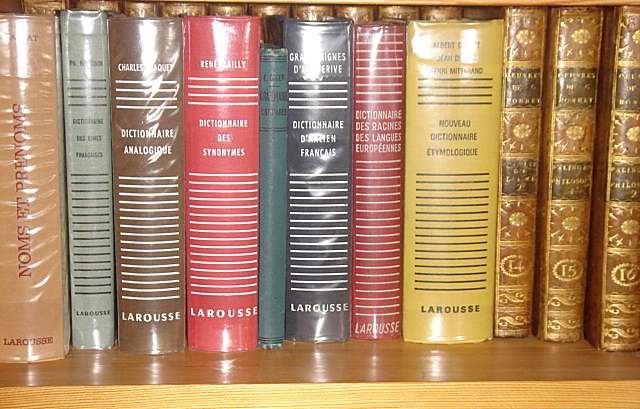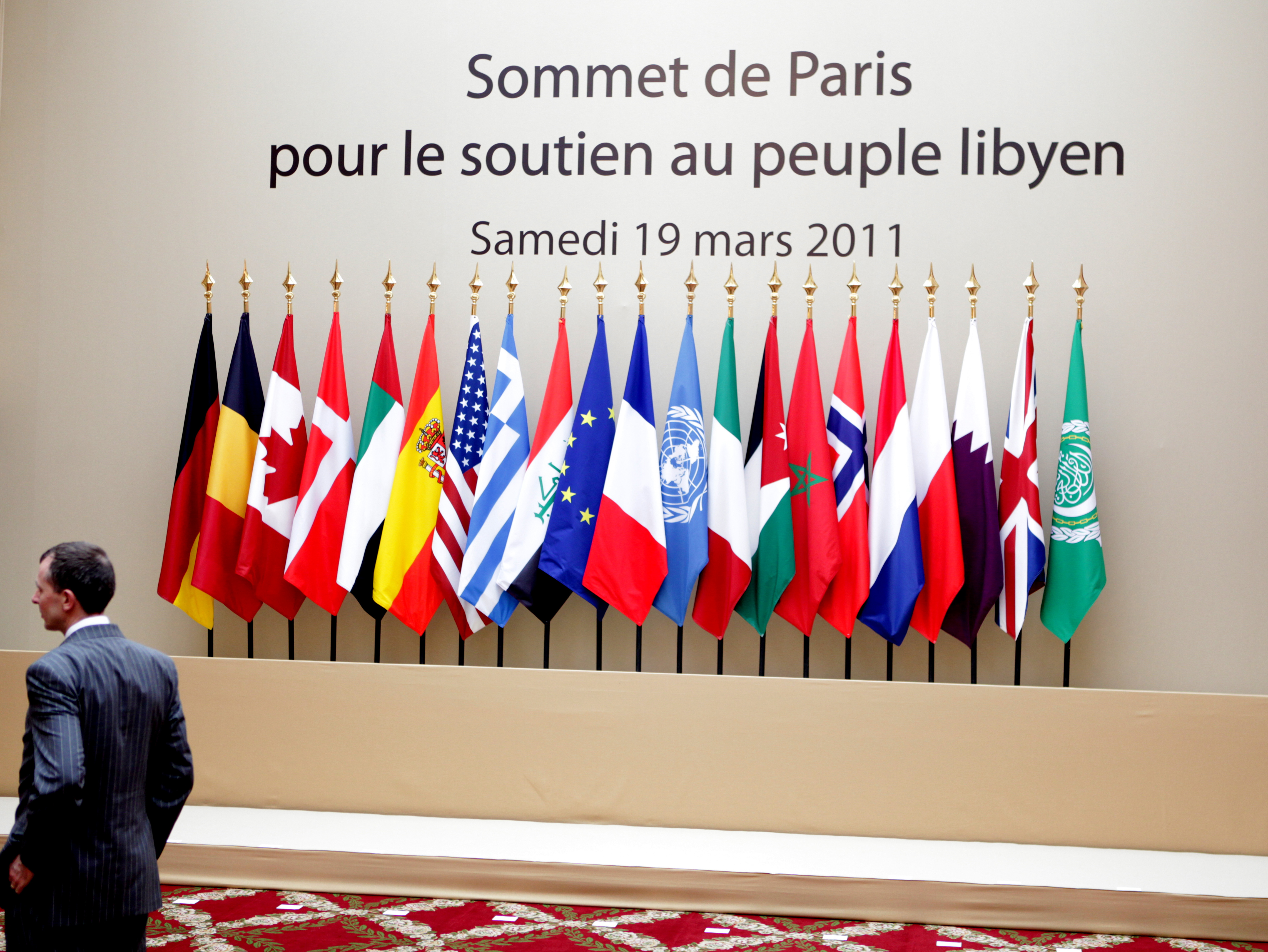|
Dictionary
A dictionary is a listing of lexemes from the lexicon of one or more specific languages, often arranged Alphabetical order, alphabetically (or by Semitic root, consonantal root for Semitic languages or radical-and-stroke sorting, radical and stroke for Logogram, logographic languages), which may include information on definitions, usage, etymologies, pronunciations, Bilingual dictionary, translation, etc.Webster's New World College Dictionary, Fourth Edition, 2002 It is a Lexicography, lexicographical reference that shows inter-relationships among the data. A broad distinction is made between general and specialized dictionaries. Specialized dictionaries include words in specialist fields, rather than a comprehensive range of words in the language. Lexical items that describe concepts in specific fields are usually called terms instead of words, although there is no consensus whether lexicology and terminology are two different fields of study. In theory, general dictionarie ... [...More Info...] [...Related Items...] OR: [Wikipedia] [Google] [Baidu] |
Chinese Dictionary
There are two types of dictionaries regularly used in the Chinese language: list individual Chinese characters, and list words and phrases. Because tens of thousands of characters have been used in written Chinese, Chinese lexicographers have developed a number of methods to order and sort characters to facilitate more convenient reference. Chinese dictionaries have been published for over two millennia, beginning in the Han dynasty. This is the longest lexicographical history of any language. In addition to works for Mandarin Chinese, beginning with the 1st-century CE '' Fangyan'' dictionaries also been created for the many varieties of Chinese. One of the most influential Chinese dictionaries ever published was the '' Kangxi Dictionary'', finished in 1716 during the Qing dynasty, with the list of 214 Kangxi radicals it popularized are still widely used. Terminology The general term ''cishu'' ( zh, links=no, t=辭書, p=císhū, l=lexicographic books) semantically encompasse ... [...More Info...] [...Related Items...] OR: [Wikipedia] [Google] [Baidu] |
Lexicography
Lexicography is the study of lexicons and the art of compiling dictionaries. It is divided into two separate academic disciplines: * Practical lexicography is the art or craft of compiling, writing and editing dictionaries. * Theoretical lexicography is the scholarly study of semantic, orthography, orthographic, syntagma (linguistics), syntagmatic and paradigmatic features of lexemes of the lexicon (vocabulary) of a language, developing theories of dictionary components and structures linking the data in dictionaries, the needs for information by users in specific types of situations, and how users may best access the data incorporated in printed and Electronic dictionary, electronic dictionaries. This is sometimes referred to as "metalexicography". There is some disagreement on the definition of lexicology, as distinct from lexicography. Some use "lexicology" as a synonym for theoretical lexicography; others use it to mean a branch of linguistics pertaining to the inventor ... [...More Info...] [...Related Items...] OR: [Wikipedia] [Google] [Baidu] |
Bilingual Dictionary
A bilingual dictionary or translation dictionary is a specialized dictionary used to Translation, translate Word (linguistics), words or phrases from one language to another. Bilingual dictionaries can be ''unidirectional'', meaning that they list the meanings of words of one language in another, or can be ''wikt:bidirectional, bidirectional'', allowing translation to and from both languages. Bidirectional bilingual dictionaries usually consist of two sections, each listing words and phrases of one language along with their translation. In addition to the translation, a bilingual dictionary usually indicates the lexical category, part of speech, grammatical gender, gender, grammatical conjugation, verb type, declension, declension model and other grammatical clues to help a foreign language, non-native speaker use the word. Other features sometimes present in bilingual dictionaries are lists of phrases, usage and style guides, verb tables, maps and grammar references. In contrast to ... [...More Info...] [...Related Items...] OR: [Wikipedia] [Google] [Baidu] |
Specialized Dictionaries
A specialized dictionary is a dictionary that covers a relatively restricted set of phenomena. The definitive book on the subject (Cowie 2009) includes chapters on some of the dictionaries included below: *synonyms *pronunciations *names (place names and personal names) *phrases and idioms *dialect terms *slang *quotations *etymologies *rhymes *lyrics Dictionaries of idioms and slang are common in most cultures. Examples include (of French) the ''Dictionnaire des expressions et locutions'', edited by Alain Rey (Paris: Le Robert 2006), and (of English) Eric Partridge's ''Dictionary of Slang and Unconventional English'' (8th edition, London: Routledge 2002). In the area of language learning, there are specialized dictionaries for aspects of language which tend to be ordinary for mother-tongue speakers but may cause difficulty for learners. These include dictionaries of phrasal verbs, such as the ''Oxford Phrasal Verbs Dictionary'' (2nd edition, Oxford University Press: 2006), and ... [...More Info...] [...Related Items...] OR: [Wikipedia] [Google] [Baidu] |
Definition
A definition is a statement of the meaning of a term (a word, phrase, or other set of symbols). Definitions can be classified into two large categories: intensional definitions (which try to give the sense of a term), and extensional definitions (which try to list the objects that a term describes).Lyons, John. "Semantics, vol. I." Cambridge: Cambridge (1977). p.158 and on. Another important category of definitions is the class of ostensive definitions, which convey the meaning of a term by pointing out examples. A term may have many different senses and multiple meanings, and thus require multiple definitions. In mathematics, a definition is used to give a precise meaning to a new term, by describing a condition which unambiguously qualifies what the mathematical term is and is not. Definitions and axioms form the basis on which all of modern mathematics is to be constructed. Basic terminology In modern usage, a definition is something, typically expressed in words, that at ... [...More Info...] [...Related Items...] OR: [Wikipedia] [Google] [Baidu] |
Thesaurus
A thesaurus (: thesauri or thesauruses), sometimes called a synonym dictionary or dictionary of synonyms, is a reference work which arranges words by their meanings (or in simpler terms, a book where one can find different words with similar meanings to other words), sometimes as a hierarchy of broader and narrower terms, sometimes simply as lists of synonyms and antonyms. They are often used by writers to help find the best word to express an idea: Synonym dictionaries have a long history. The word 'thesaurus' was used in 1852 by Peter Mark Roget for his ''Roget's Thesaurus''. While some works called "thesauri", such as ''Roget's Thesaurus'', group words in a hierarchical hypernymic taxonomy of concepts, others are organised alphabetically or in some other way. Most thesauri do not include definitions, but many dictionaries include listings of synonyms. Some thesauri and dictionary synonym notes characterise the distinctions between similar words, with notes on their " ... [...More Info...] [...Related Items...] OR: [Wikipedia] [Google] [Baidu] |
Monolingual Dictionary
An explanatory dictionary or defining dictionary is a dictionary that provides definitions of word meanings at its entries. It may give additional information on pronunciation, grammar, etymology Etymology ( ) is the study of the origin and evolution of words—including their constituent units of sound and meaning—across time. In the 21st century a subfield within linguistics, etymology has become a more rigorously scientific study. ..., and so on. In practice, it is equivalent to a monolingual general dictionary. Such dictionaries are usually meant for native speakers of the language. References Dictionaries by type {{dictionary-stub ... [...More Info...] [...Related Items...] OR: [Wikipedia] [Google] [Baidu] |
Alphabetical Order
Alphabetical order is a system whereby character strings are placed in order based on the position of the characters in the conventional ordering of an alphabet. It is one of the methods of collation. In mathematics, a lexicographical order is the generalization of the alphabetical order to other data types, such as sequence (mathematics), sequences of numbers or other ordered mathematical objects. When applied to strings or sequence (mathematics), sequences that may contain digits, numbers or more elaborate types of elements, in addition to alphabetical characters, the alphabetical order is generally called a lexicographical order. To determine which of two strings of characters comes first when arranging in alphabetical order, their first letter (alphabet), letters are compared. If they differ, then the string whose first letter comes earlier in the alphabet comes before the other string. If the first letters are the same, then the second letters are compared, and so on. If a ... [...More Info...] [...Related Items...] OR: [Wikipedia] [Google] [Baidu] |
Etymologies
Etymology ( ) is the study of the origin and evolution of words—including their constituent units of sound and meaning—across time. In the 21st century a subfield within linguistics, etymology has become a more rigorously scientific study. Most directly tied to historical linguistics, philology, and semiotics, it additionally draws upon comparative semantics, morphology, pragmatics, and phonetics in order to attempt a comprehensive and chronological catalogue of all meanings and changes that a word (and its related parts) carries throughout its history. The origin of any particular word is also known as its ''etymology''. For languages with a long written history, etymologists make use of texts, particularly texts about the language itself, to gather knowledge about how words were used during earlier periods, how they developed in meaning and form, or when and how they entered the language. Etymologists also apply the methods of comparative linguistics to reconstruct in ... [...More Info...] [...Related Items...] OR: [Wikipedia] [Google] [Baidu] |
Prescription And Description
Linguistic prescription is the establishment of rules defining publicly preferred Usage (language), usage of language, including rules of spelling, pronunciation, vocabulary, grammar, etc. Linguistic prescriptivism may aim to establish a standard language, teach what a particular society or sector of a society perceives as a correct or proper form, or advise on effective and stylistically apt communication. If usage preferences are conservative, prescription might appear resistant to language change; if radical, it may produce neologisms. Such prescriptions may be motivated by consistency (making a language simpler or more logical); rhetorical effectiveness; tradition; aesthetics or personal preferences; linguistic purism or nationalism (i.e. removing foreign influences); or to avoid causing offense (etiquette or political correctness). Prescriptive approaches to language are often contrasted with the Linguistic description, descriptive approach of Linguistics, academic linguistic ... [...More Info...] [...Related Items...] OR: [Wikipedia] [Google] [Baidu] |



